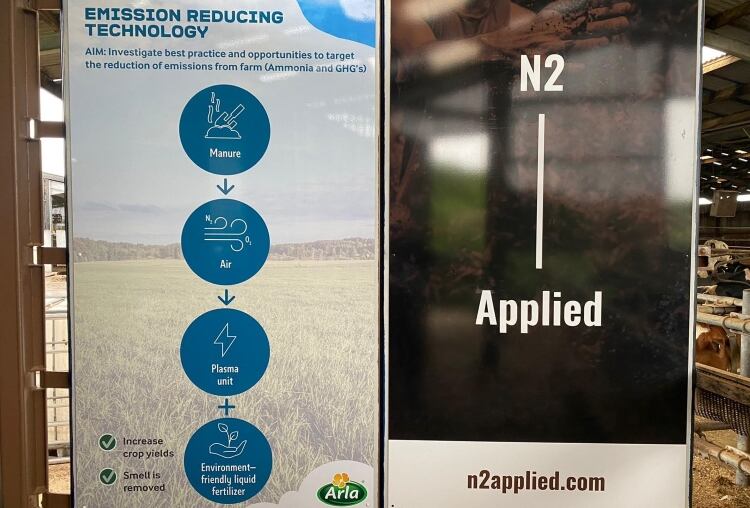It follows a further fundraising of $9.6m from existing shareholders last month to accelerate the commercial rollout of technology converting animal manure into sustainable fertilizer while trapping greenhouse gases.
The grant is funded by the European Innovation Council (EIC), whose mission is to identify and support breakthrough technologies that can transform entire industries, and those technologies must be able to scale internationally and have the potential to become market leaders.
N2 Applied's core business is to reduce methane and ammonia emissions from food production, and in-turn convert livestock manure into effective and sustainable nitrogen-rich fertilizer. The manure is fed into a machine known as the N2 Unit and high-voltage electricity is applied to convert the plasma, drawing in nitrogen from the air. The result is farmers produces fertilizer that can be as effective as chemical fertilizers, and there is a reduction in greenhouse gases.
Trials at Arla Foods’ Innovation Farm in the UK showed a 90% reduction in ammonia emissions from treated material in independent tests by ADAS.
“This recognition, in the form of a large investment, is another sign of how leading and powerful our technology is,” said Carl Hansson, CEO of N2 Applied.
“Manure accounts for about a quarter of the methane emissions to livestock farmers. Our solution means that one liter of milk can have as much as 27% less greenhouse gas emissions than traditional milk.
“Methane has as much as 28 times more warming effect than carbon dioxide. At the same time, the gas has a much shorter life in the atmosphere than carbon dioxide. This means that if you want to abruptly slow down climate change, you get an almost instantaneous effect by cutting methane emissions.”



